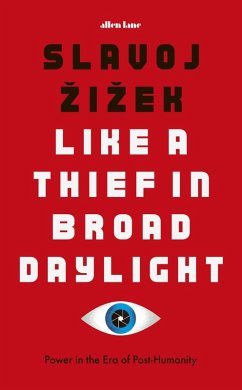
On Violence (eBook, ePUB)
Versandkostenfrei!
Sofort per Download lieferbar
8,49 €
inkl. MwSt.
Weitere Ausgaben:

PAYBACK Punkte
0 °P sammeln!
From Hannah Arendt, the author of The Origins of Totalitarianism, her influential essay examining the relationship between violence, power, war and politics'Violence can destroy power; it is utterly incapable of creating it'Why has violence played such a significant role in human history? Written in 1970, with the Holocaust and Hiroshima still fresh in recent memory, war in Vietnam raging and the streets of Europe and America exploding into student protest, Hannah Arendt's seminal work dissects violence in the twentieth century: its nature and causes, its relationship with politics and war, it...
From Hannah Arendt, the author of The Origins of Totalitarianism, her influential essay examining the relationship between violence, power, war and politics
'Violence can destroy power; it is utterly incapable of creating it'
Why has violence played such a significant role in human history? Written in 1970, with the Holocaust and Hiroshima still fresh in recent memory, war in Vietnam raging and the streets of Europe and America exploding into student protest, Hannah Arendt's seminal work dissects violence in the twentieth century: its nature and causes, its relationship with politics and war, its role in the modern age. Arendt warns against the glamorization of violence by revolutionary causes, and argues that true, lasting power can never grow 'out of the barrel of a gun'.
'Incisive, deeply probing, written with clarity and grace, it provides an ideal framework for understanding the turbulence of our times' The Nation
With an introduction by Arendt expert, Lyndsey Stonebridge, Professor of Humanities and Human Rights at the University of Birmingham.
'Violence can destroy power; it is utterly incapable of creating it'
Why has violence played such a significant role in human history? Written in 1970, with the Holocaust and Hiroshima still fresh in recent memory, war in Vietnam raging and the streets of Europe and America exploding into student protest, Hannah Arendt's seminal work dissects violence in the twentieth century: its nature and causes, its relationship with politics and war, its role in the modern age. Arendt warns against the glamorization of violence by revolutionary causes, and argues that true, lasting power can never grow 'out of the barrel of a gun'.
'Incisive, deeply probing, written with clarity and grace, it provides an ideal framework for understanding the turbulence of our times' The Nation
With an introduction by Arendt expert, Lyndsey Stonebridge, Professor of Humanities and Human Rights at the University of Birmingham.
Dieser Download kann aus rechtlichen Gründen nur mit Rechnungsadresse in A, B, BG, CY, CZ, D, DK, EW, E, FIN, F, GR, HR, H, IRL, I, LT, L, LR, M, NL, PL, P, R, S, SLO, SK ausgeliefert werden.












